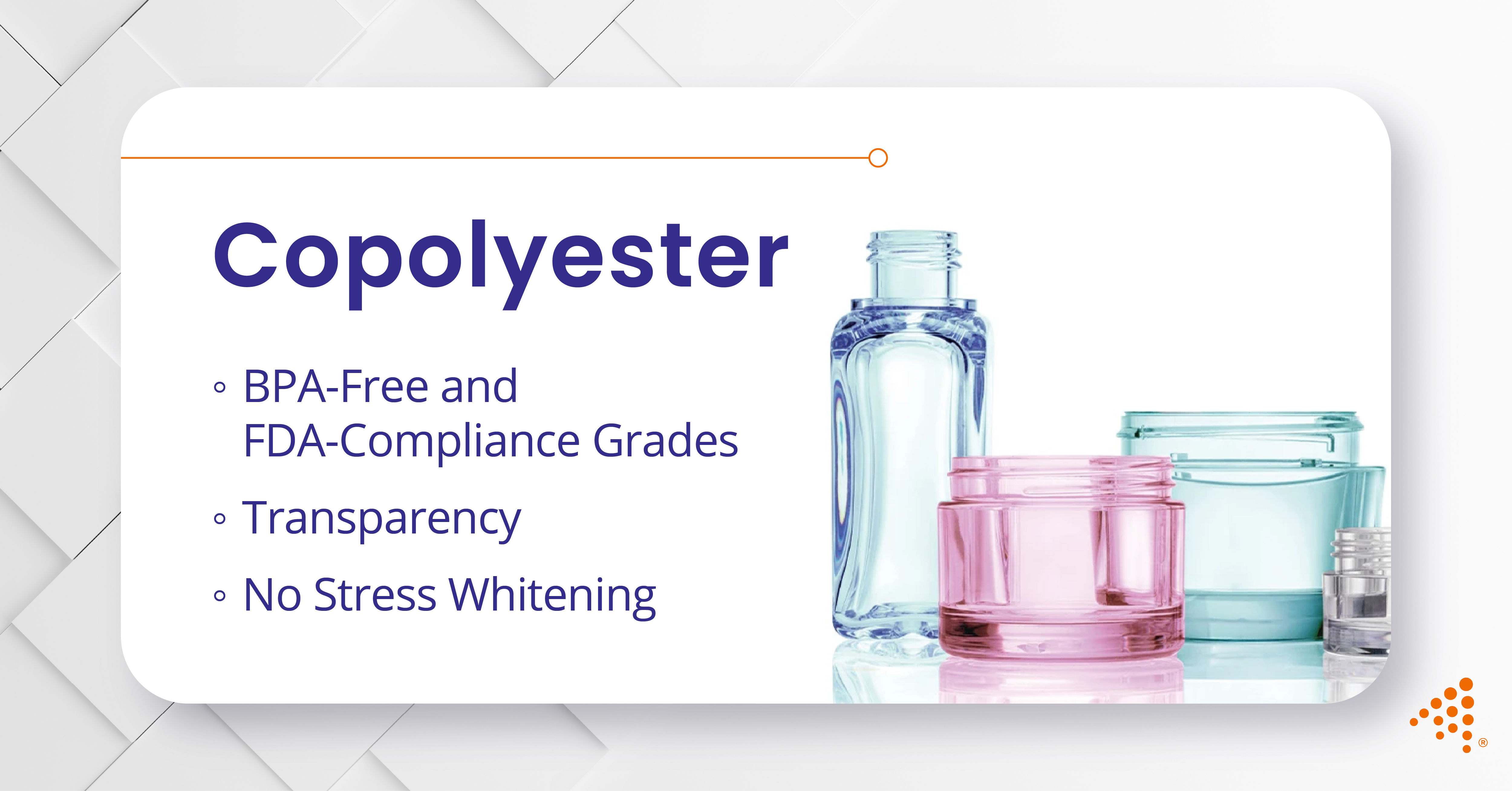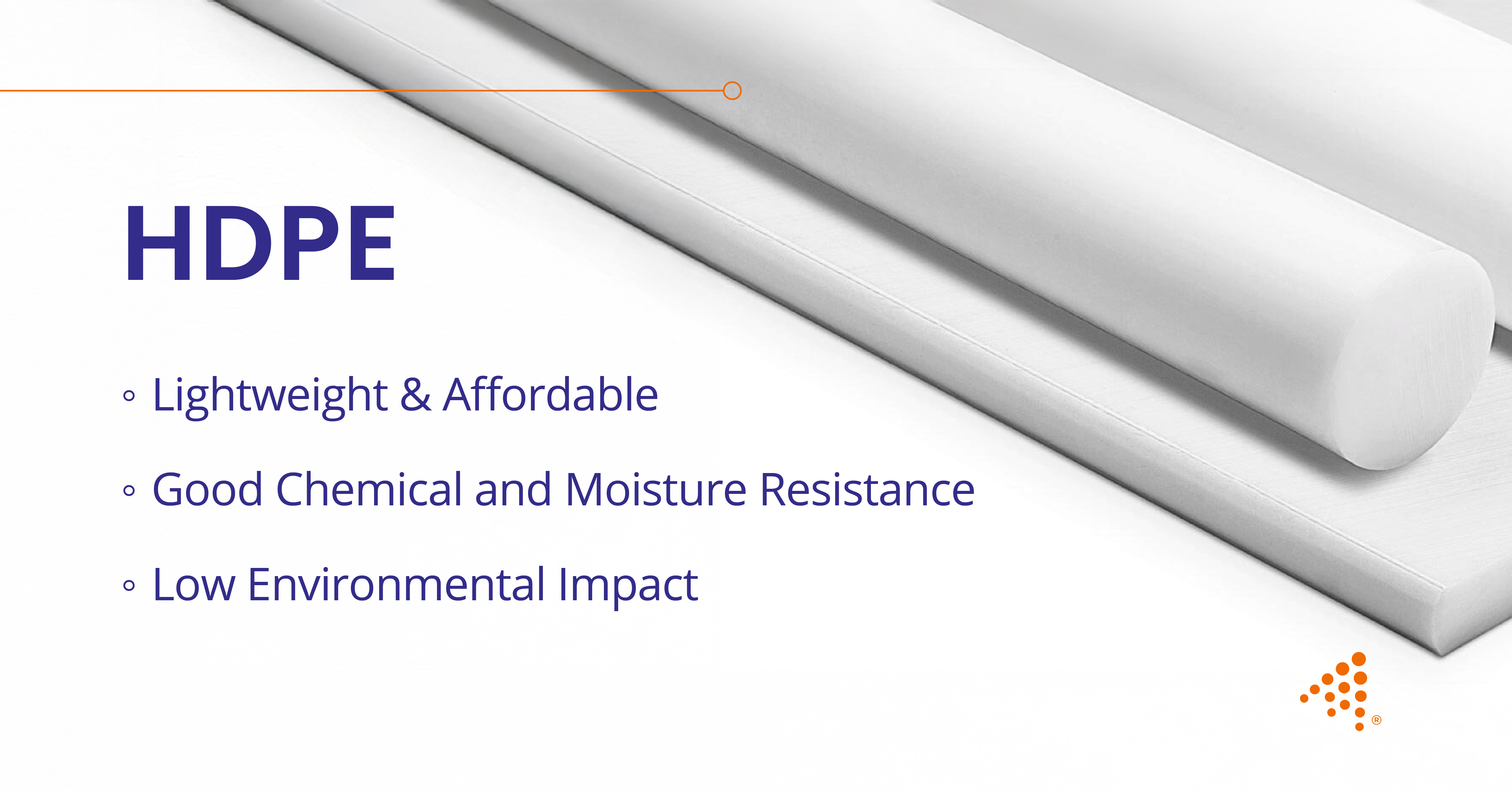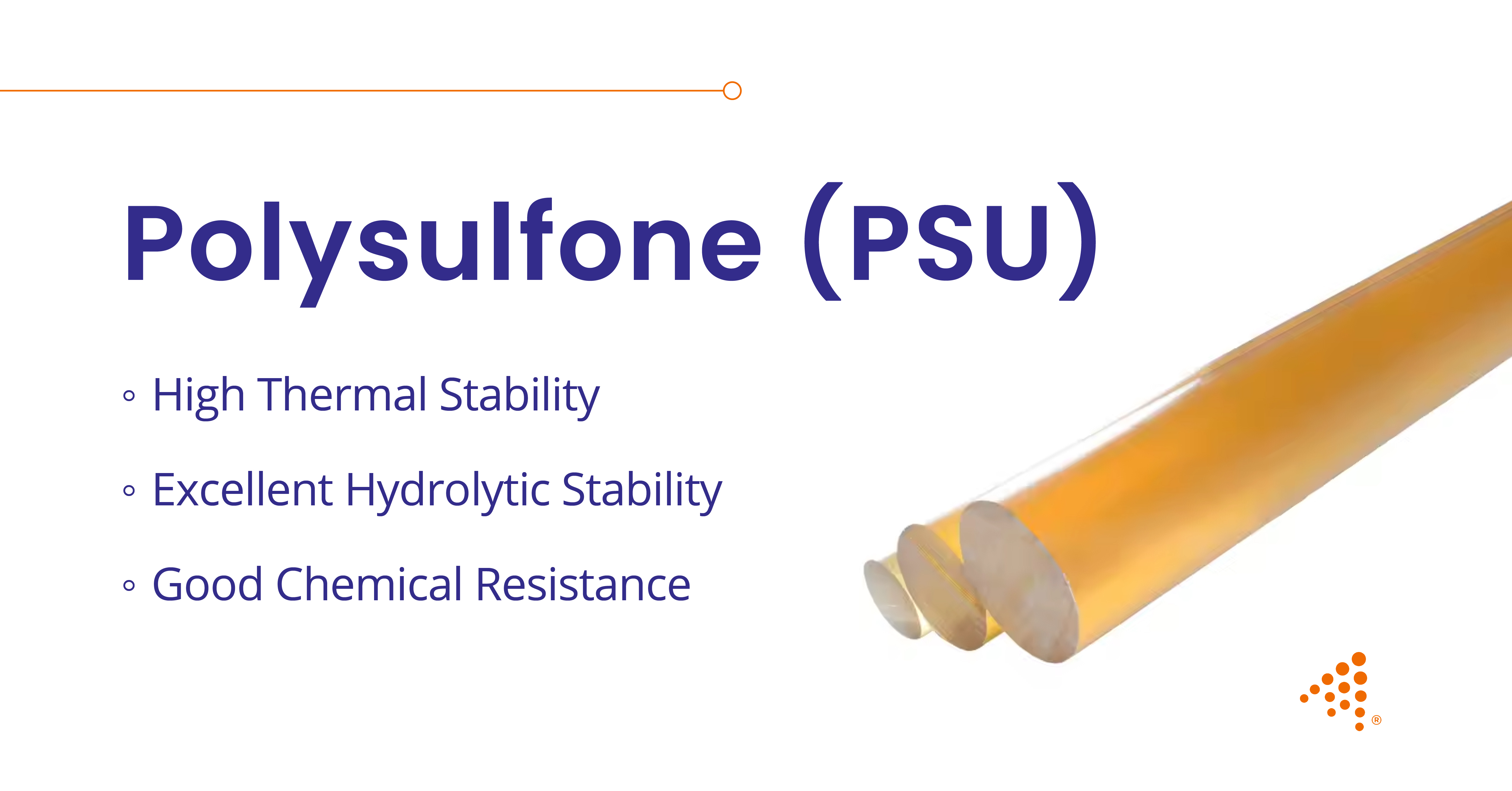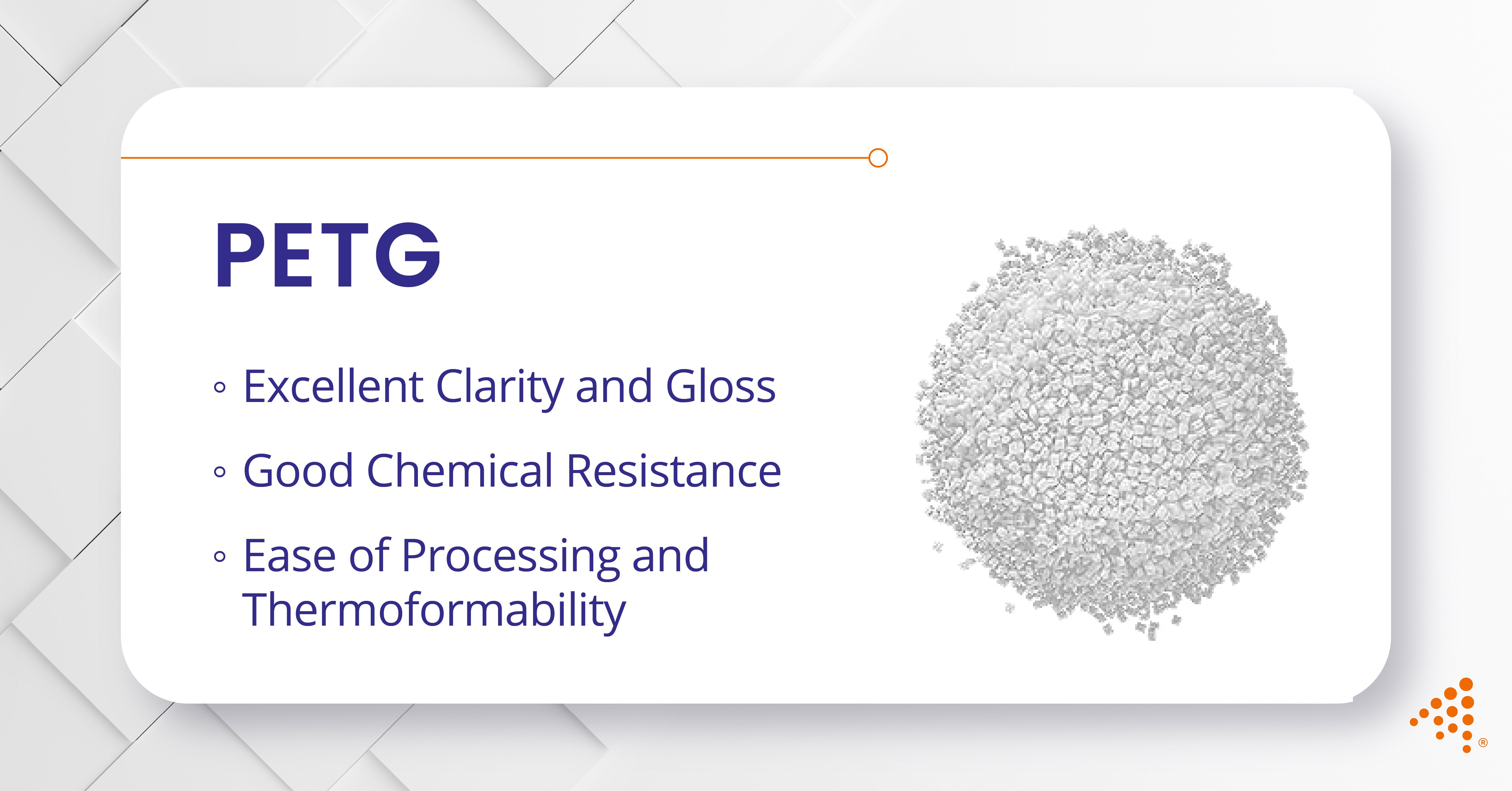HDPE: A Lightweight, Durable Resin for Diverse Applications
High-Density Polyethylene (HDPE) is a versatile, cost-effective material that excels in a wide range of applications, from medical devices to...
4 min read
Nick Erickson : Nov 10, 2025 10:06:00 AM

Copolyester is a high-performance thermoplastic resin known for its chemical resistance, dimensional stability, and clarity. It's frequently used in industries like healthcare, consumer goods, and food packaging due to its ability to withstand exposure to chemicals, oils, and solvents, while maintaining its structural integrity.
Many grades of copolyester are BPA-free and designed to meet FDA and USP Class VI requirements, making them ideal for medical, food-contact, and pharmaceutical applications. This biocompatibility makes copolyester a trusted choice in medical injection molding where patient safety and regulatory compliance are essential.
Copolyester retains its shape and size better than many other materials under varying conditions. This makes it an ideal choice for use cases requiring high precision, such as medical components, wearables, and consumer goods that must maintain their form over time despite exposure to environmental stress.
Copolyester withstands a wide range of chemicals, oils, and solvents, making it well-suited for contexts in which exposure to harsh substances is common. It is often used in environments where parts need to resist corrosion or degradation from chemicals, such as in diagnostic equipment or medical containers.
Copolyester is naturally clear and exhibits a high-gloss surface finish, making it ideal for applications where visual appeal and transparency are important. It’s commonly used in medical device housings, containers, and consumer packaging where product visibility is a key selling point.
Well-suited for injection molding, extrusion, and blow molding, copolyester offers strong melt strength and dimensional consistency. It allows for complex part geometries, tight tolerances, and efficient high-volume custom manufacturing services.
Unlike materials such as polycarbonate or acrylic, copolyester resists stress whitening when flexed or bent. This means it retains a clean, clear appearance even after repeated use, which is especially important in applications where both performance and aesthetics matter.
Use our Material Selection Tool to compare thermoplastics like copolyester, ABS, polycarbonate, and more. Find the perfect fit for your project.
Copolyester’s combination of clarity, toughness, chemical resistance, and regulatory compliance makes it an ideal material for a wide range of high-performance products. Its versatility and ease of processing—especially via injection molding and extrusion—make it a reliable choice across industries including medical, packaging, and consumer goods. Below are some of the most common and valuable use cases for copolyester:
Copolyester is frequently used in medical injection molding for products that require clarity, toughness, and sterilization compatibility. Common examples include diagnostic device housings, fluid delivery systems, labware, and surgical tool components. Its BPA-free composition and ability to meet FDA and USP Class VI requirements make it especially suitable for single-use or reusable medical products that come into contact with patients or bodily fluids.
In laboratory settings, copolyester is a trusted material for items like test tubes, vials, sample containers, and instrument enclosures. It maintains dimensional stability and clarity through repeated cleaning and handling, while resisting many of the chemicals used in testing and sterilization processes.
Copolyester’s clarity and resistance to cracking under stress make it ideal for clear rigid packaging, including containers for personal care products, pharmaceuticals, and food items. Its durability ensures it holds up under transportation and handling, while its FDA compliance supports use in food and beverage packaging.
Copolyester is also used in the production of wearable devices that require both clarity and dimensional stability. Whether it's a fitness tracker or a medical monitoring device, copolyester ensures that the device remains durable and functional over time.
In industrial and home appliances, copolyester is used for handles, covers, buttons, and internal components where impact resistance and clarity are desired. Its processability allows for clean, molded parts with fine details and consistent performance over time.
Thanks to its strength and visual appeal, copolyester is used in a wide range of everyday consumer goods. Items such as reusable water bottles, cosmetic packaging, electronics housings, and kitchenware benefit from copolyester’s balance of aesthetics and performance. It also resists odors and staining, which contributes to its popularity in household and personal care items.
Copolyester can be tailored with various additives and processing modifications to enhance its performance for specialized product requirements. While the base resin already offers outstanding clarity, impact strength, and chemical resistance, these enhancements can further optimize its properties for demanding environments and technical specifications.
Colorants are often added to copolyester to create vibrant, transparent hues or opaque finishes without compromising clarity or strength. This is particularly useful in consumer packaging, medical device branding, or retail displays where visual appeal and differentiation are important. UV stabilizers can be introduced to improve resistance to yellowing or degradation caused by sunlight exposure—especially for products intended for outdoor or well-lit environments.
In medical injection molding, copolyester can be modified to meet stringent regulatory and performance requirements. BPA-free formulations are standard, but additional compliance with FDA, ISO 10993, or USP Class VI standards can also be achieved. Process aids such as mold release agents and flow enhancers may be incorporated to support efficient, high-precision molding of intricate geometries and thin-walled parts.
Other performance-enhancing modifications may include anti-static agents for sensitive electronics packaging or surface treatments to improve scratch resistance and durability. These customizations allow manufacturers to fine-tune the resin for specific functions, whether the end product is a reusable medical instrument or a high-end consumer good.
Copolyester is a strong, clear, and versatile material, but like all thermoplastics, it has its limitations. Understanding these potential drawbacks is essential when evaluating whether it’s the best fit for a particular product, especially in fields that demand precision and long-term durability like healthcare and electronics.
Copolyester’s heat resistance is limited to around 180°F (82°C), which makes it unsuitable for applications exposed to higher temperatures. In environments where extreme heat is a concern, other materials with higher heat tolerance, such as PBT or PEEK, may be more suitable.
Copolyester offers great toughness and impact resistance, but its rigidity is lower than materials like polycarbonate or certain glass-filled resins. In structural or load-bearing parts that require minimal flexing, this can be a limitation—particularly in components where dimensional stability under stress is essential.
Although copolyester shows strong resistance to many household and medical chemicals, it may not perform well against certain industrial solvents or aggressive chemicals such as acetone or strong acids. This restricts its use in environments where chemical exposure is frequent or unpredictable.
Compared to more common resins like polyethylene or polypropylene, copolyester tends to be more expensive. This may make it less suitable for price-sensitive end uses or mass-production environments where cost-effectiveness is a priority.
Explore our end-to-end manufacturing services and let Aprios help you source and process the ideal copolyester resin for your application.
Copolyester offers exceptional chemical resistance, transparency, and dimensional stability, making it a reliable injection molding material for a range of applications. Its FDA approval and ease of sterilization make it ideal for medical and food contact applications, while its clarity and toughness ensure its suitability for consumer and industrial products.
Explore our end-to-end manufacturing services and let Aprios help you source and process the ideal copolyester resin for your application. Contact us today for expert guidance.
You can also view our Material Selection tool.

High-Density Polyethylene (HDPE) is a versatile, cost-effective material that excels in a wide range of applications, from medical devices to...

Polysulfone (PSU) is a high-performance, semi-transparent thermoplastic known for its exceptional thermal stability, mechanical strength, and...

Polyethylene terephthalate glycol (PETG) is a versatile thermoplastic polyester resin gaining significant traction across various industries due to...